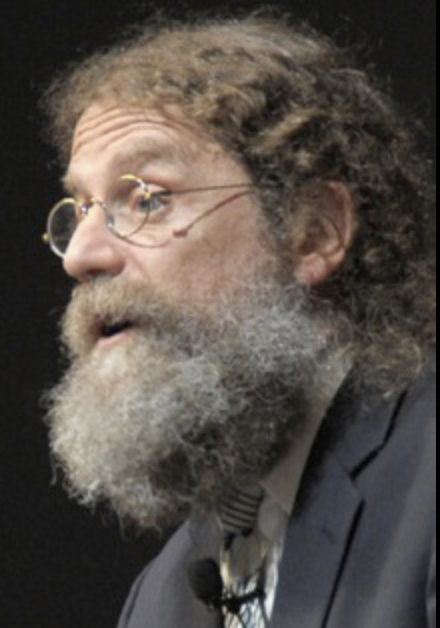April 6
Robert M. Sapolsky

On this date in 1957, biologist and neuroendocrinologist Robert Morris Sapolsky was born in Brooklyn, New York. Sapolsky, whose parents emigrated from the Soviet Union, was raised in an Orthodox Jewish family in the Bensonhurst neighborhood. His father was an architect. He was a precocious student, teaching himself Swahili and writing letters to primatologists as a student at John Dewey High School on Coney Island.
He graduated from Harvard University in 1978 with a B.A. in biological anthropology and received his Ph.D. in neuroendocrinology from The Rockefeller University in New York City in 1984. He did post-doctoral work at the Salk Institute and was a research associate at the Institute of Primate Research, National Museums of Kenya. From 1978 until 1990 he spent three to four months a year living in a pup tent in Kenya to study the baboon population.
Sapolsky is a professor of biology, neurological sciences and neurosurgery at Stanford University. His work as a neuroendocrinologist has addressed the issues of stress and neuronal degeneration. Among the latest of his nearly 300 journal publications (as of this writing) is “This Is Your Brain on Nationalism: The Biology of Us and Them” (Foreign Affairs, 2019).
His books include Stress, the Aging Brain, and the Mechanisms of Neuron Death (1992), Why Zebras Don’t Get Ulcers (1994), Junk Food Monkeys (1997), The Trouble with Testosterone and Other Essays on the Biology of the Human Predicament (1998), the best-selling A Primate’s Memoir: A Neuroscientist’s Unconventional Life Among the Baboons (2001), Monkeyluv: And Other Essays on Our Lives as Animals (2005) and Behave: The Biology of Humans at Our Best and Worst (2017).
Sapolsky has received numerous honors and awards, including the prestigious MacArthur Fellowship Genius Grant in 1987 and the 2008 Carl Sagan Prize for Science Popularization. In 2002 he was the recipient of FFRF’s Emperor Has No Clothes Award (“Belief and Biology” acceptance speech). He is married to Lisa Sapolsky, a neuropsychologist. They have two children, Benjamin and Rachel.
PHOTO: Sapolsky in 2009; National Institutes of Health photo
“I was raised in an Orthodox household, and I was raised devoutly religious up until around age 13 or so. In my adolescent years, one of the defining actions in my life was breaking away from all religious belief whatsoever.”
— Robert Sapolsky, Emperor Has No Clothes Award acceptance speech (Nov. 23, 2003)
